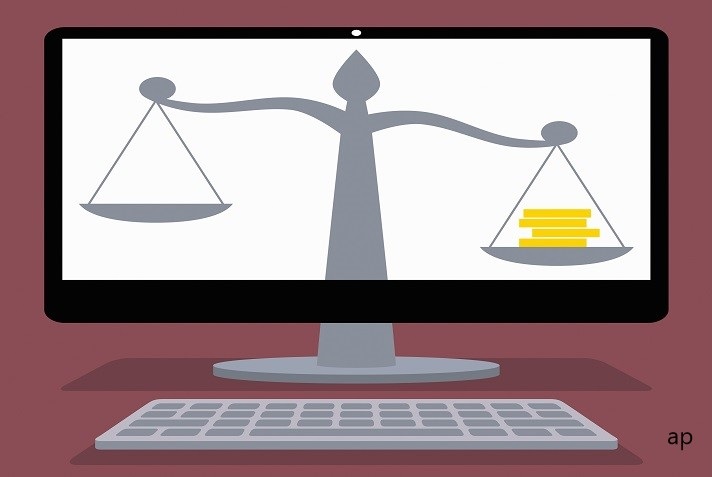
Reader Responses
Friday’s “Farewell, Mutual Funds” was controversial. It made an aggressive claim: that eventually, exchange-traded funds, or ETFs, would replace mutual funds as the public’s (and institutions’) favourite investment. Swing hard, expect resistance.
Those who disagreed offered four counterarguments:
- My terminology was wrong.
- ETFs have operational defects.
- For some uses, ETFs are unsuitable.
- Even if ETFs were superior, mutual fund investors have reasons to stay put.
Fair enough. I will address those rebuttals.
By Any Other Name
Several respondents objected that I contrasted mutual funds with ETFs because “exchange-traded funds are mutual funds.” They are largely correct. Most, although not all, ETFs are derivations of mutual funds. Famously, Vanguard was issued a patent for structuring its ETFs as one of its mutual funds’ share classes.
However, common practice is otherwise, because otherwise the terminology would be awkward. If ETFs are treated as a flavor of mutual fund, a problem arises: What, then, to call the other form of mutual funds? Daily priced funds? Non-exchange-traded funds? Coke Classic? Better to reserve the term “mutual fund” for the traditional investment and give ETFs a different name.
Thus, Morningstar consistently distinguishes between mutual funds, meaning open-end funds that are not listed on exchanges, and ETFs. The nomenclature is technically imprecise, but it is the prevailing custom.
Nuts and Bolts
As complex financial innovations go, ETFs were unusually well-conceived. However, when revamping the traditional mutual fund structure to bring the twin benefits of greater liquidity (by trading on an exchange) and improved tax efficiency, some advantages inevitably would be lost. For ETF, the catch involves making putting additional monies to work:
1. Ongoing Purchases
Once mutual fund investors establish an account, they typically may acquire additional shares in whatever amount they wish. In contrast, ETF owners are often required to buy entire shares of those securities, rather than being permitted to hold fractional shares.
2. Dividend Reinvestments
Writes one reader, “Reinvesting dividends is slightly more problematic with ETFs. If I want to invest dividends, it can take a couple of days, and I have to do it myself. With mutual funds, this process can be automated and happens the next day (with Vanguard at least).” From another, “It takes involvement and action by the investor to keep the payouts of any kind invested. If a retail ETF investor is not active and sleeps through distributions he will accumulate cash, returning 0.1%, which dilutes his portfolio return, much as mutual fund expenses dilute returns.”
Those are indeed annoyances. The good news is that they are not permanent flaws based on how ETFs are built, but instead are fixable issues. The solution, however, lies outside of ETF providers’ hands. Fractional-share and dividend-reinvestment programs must be administered by brokerage firms. Happily, many brokers have already launched these features. Those that have not will soon join the crowd; consumer demand will ensure their compliance.
Deeper Concerns
Those were the easy items. The trickier problems are those that cannot be resolved by computer programs.
One is that ETFs have bid-ask spreads. Whereas mutual funds offer a single price to both buyers and sellers (assuming that the fund does not carry load charges, which has become increasingly likely, as such charges are unfashionable), ETFs demand a higher price for buyers than they provide to sellers. Happily, such spreads are tiny for the major ETFs, but they can be costly for the smallest fare.
A larger worry is the gap between the fund’s underlying worth, as represented by its net asset value, and its market price. Under normal circumstances, the gap is modest, because if the difference between those two amounts becomes meaningful, institutional investors shrink it through arbitrage trading. During 2010’s “flash crash,” however, the market prices for many stock ETFs fell much further than did their net asset values.
In Friday’s column, I cavalierly wrote that such behavior was a thing of the relatively distant past, thereby placing ETFs mostly (although not entirely) in the clear. My mistake. Somehow, I had forgotten that two similar downturns struck in 2015. As with the 2010 disturbance, ETFs were scarcely the market’s only culprit; many individual stocks also behaved bizarrely. In addition, the SEC has since enacted stock-market reforms. Still, this chapter remains open.
My assertion that active ETFs will encounter no significant obstacles was also something of a stretch. True, the relatively few active ETFs that do exist have performed well enough, and Capital Group’s decision to enter the fray signals that the category can appeal to even the most cautious fund families. But ultimately, there hasn’t been enough evidence to determine whether active ETFs will bring unintended consequences. So far, the experience has been positive but limited.
Sitting Tight
Of all reader comments, the most popular refrain was that all these arguments might be fine and good, but they wouldn’t be buying ETFs anytime soon. The reasons being first, they were content with their mutual funds, and second, doing so would trigger capital gains taxes from the funds they held in taxable accounts. Surely, whatever benefit they might receive from owning ETFs would be dwarfed by the cost of paying those taxes now, instead of delaying them.
I fully agree. My prediction is generational, not imminent. By and large, most current mutual fund investors will remain loyal to that investment, both from habit and from the understandable reluctance to realize capital gains. The transition to ETFs from mutual funds will be long-term, as younger investors who are weaned on ETFs--or who are placed in ETF portfolios when they first hire a financial advisor--gradually replace those who preceded them.
But if not quickly, I continue to believe that the torch will eventually be passed. The arguments against ETFs are somewhat stronger than what I originally presented, but not, I think, sufficient to deter the prevailing market forces.
This article was originally written on Morningstar.com for a U.S. audience.



















